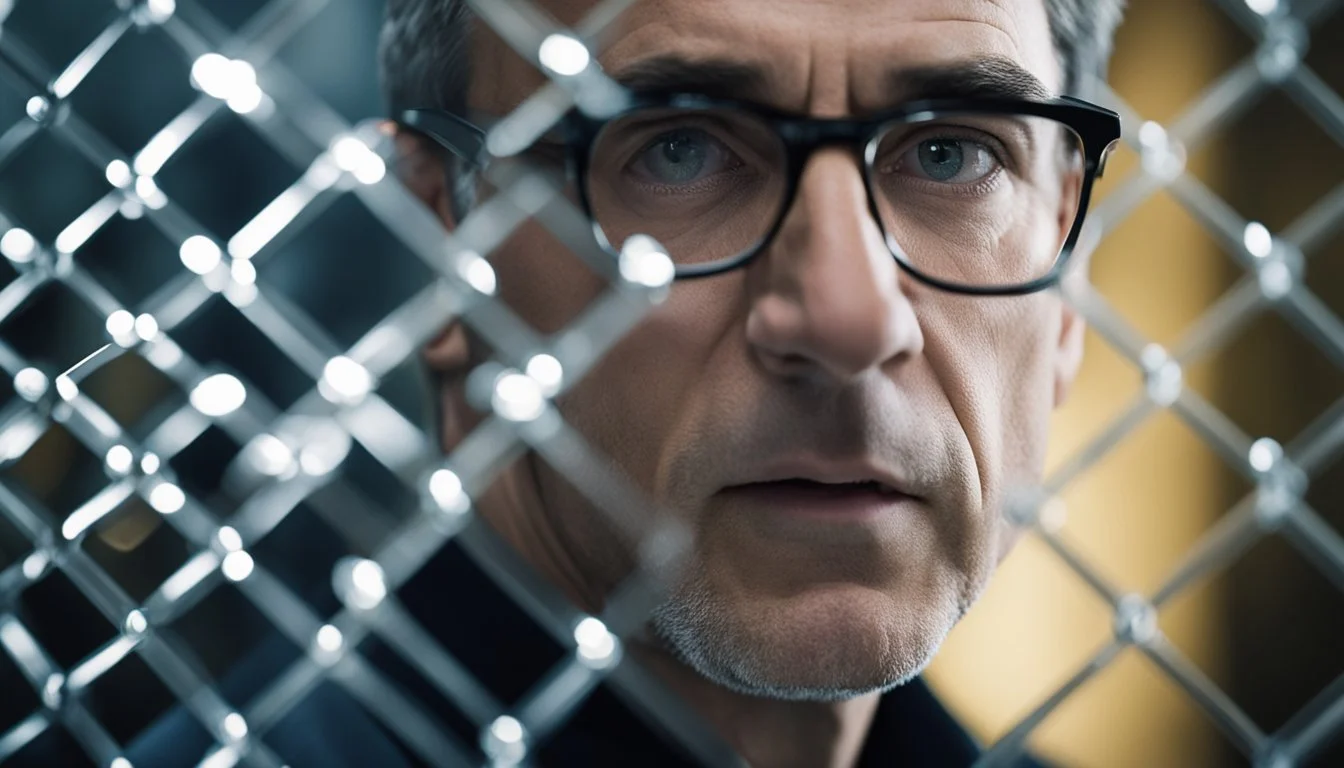Robert Greenwald: Holding the Powerful Accountable in Today's Media Landscape
Robert Greenwald has dedicated his career to exposing injustices and holding the powerful accountable. Born on August 28, 1945, Greenwald is a prolific American filmmaker and the founder of Brave New Films, a nonprofit organization known for producing incisive investigative documentaries. Brave New Films distributes its content for free to educate and galvanize public action on important social and political issues.
Through documentaries like "Uncovered: The War on Iraq" and "Wal-Mart: The High Cost of Low Price," Greenwald has highlighted issues ranging from corporate misconduct to government malfeasance. His work with Brave New Films underscores his commitment to transparency and ethical governance.
Greenwald's projects often collaborate with nonprofit partners and movements, ensuring widespread dissemination and impact. His approach combines compelling storytelling with a rigorous investigation, making complex issues accessible and engaging for a broader audience.
Profile of Robert Greenwald
Robert Greenwald, an American filmmaker, is the founder of Brave New Films. He has focused on creating impactful documentaries that highlight social and political issues.
Early Life and Education
Robert Greenwald was born on August 28, 1945. He grew up in New York City, where he developed an early interest in the arts. He attended the High School of Performing Arts, which laid the foundation for his future career. Greenwald later pursued higher education at Antioch College in Ohio, known for its progressive values. This background provided him with an early exposure to social and political activism, which influenced his future work in filmmaking.
Career Beginnings in Film and Television
Greenwald began his career in commercial television and film. He directed several television movies and miniseries in the 1970s and 1980s, which garnered critical acclaim. Notable projects include The Burning Bed (1984), a powerful film addressing domestic violence, and Xanadu (1980), a fantasy musical.
In the early 2000s, he transitioned to more politically charged documentaries, leading to the establishment of Brave New Films. This shift marked a new phase in his career, focusing on investigative work aimed at holding the powerful accountable.
Establishment of Brave New Films
Brave New Films was established by Robert Greenwald with the intent to create documentaries that educate and inspire action on pressing social and political issues. The organization focuses on advocacy and investigative journalism through film.
Mission and Vision
The mission of Brave New Films centers around using media to motivate and inform the public on key societal challenges. Greenwald founded the nonprofit to empower viewers, aiming to foster a more engaged and informed citizenry. Its vision is to achieve this by offering free distribution of content, ensuring accessibility.
Key aspects include:
Free Distribution: Films and videos are available at no cost.
Collaborations: Works in partnership with nonprofits and social movements.
Empowerment: Encourages viewers to take actionable steps based on insights from the films.
Notable Documentary Works
Brave New Films has produced several impactful documentaries since its founding. These works cover significant topics such as war, economic inequality, and voter suppression.
Notable documentaries include:
"Uncovered: The War on Iraq" (2004): Investigates the motives and false claims behind the Iraq War.
"Koch Brothers Exposed" (2012): Sheds light on the influence of money in American politics.
"Racially Charged" (2020): Examines the history and impact of racial injustice in the U.S.
These documentaries have not only garnered attention but have also played a role in sparking conversations and actions on the issues they address.
Advocacy and Impact
Robert Greenwald's work as an advocate through filmmaking has had significant political and social influence. His efforts have illuminated pressing societal issues and galvanized public action.
Political Activism
Greenwald's films often focus on intense scrutiny and critique of powerful institutions. Outfoxed: Rupert Murdoch's War on Journalism exposed the biases within major media corporations. Uncovered: The War on Iraq challenged the U.S. government's rationale for the Iraq War. His dedication to activism is evident in his commitment to producing documentaries that hold policymakers accountable.
Through his nonprofit, Brave New Films, Greenwald collaborates with other advocacy organizations to maximize the reach and impact of his work. This partnership strategy allows for a broader dissemination of information and mobilizes viewers to engage in political activism.
Public Reception and Influence
Greenwald's documentaries have received considerable public attention and accolades. Wal-Mart: The High Cost of Low Price revealed the detrimental practices of large corporations on local economies and labor conditions, sparking debates and calls for corporate responsibility.
The public's response to his films often translates to tangible actions, such as policy changes and grassroots movements. Reviews and media coverage highlight the significance of his work in shaping public opinion and advocacy. His approach effectively combines storytelling with factual reporting, making complex issues accessible and engaging to a wide audience.
Documentary Filmmaking Techniques
Robert Greenwald employs a blend of incisive investigation and compelling storytelling in his documentary filmmaking. His techniques ensure that complex subjects are accessible and engaging for a wide audience.
Investigative Approach
Greenwald's work often begins with thorough research. He seeks out primary sources and documents that reveal hidden truths about subjects like government actions and corporate practices.
Using interviews with experts, whistleblowers, and affected individuals, he builds a fact-based foundation for his films. This method adds credibility and depth to his narratives.
Archival footage and government documents are frequently incorporated, providing historical context and evidence. By meticulously verifying facts and cross-referencing sources, Greenwald creates documentaries that stand up to scrutiny.
Narrative Storytelling
Greenwald interweaves personal stories with broader societal issues, creating a human connection to complex topics. This technique helps viewers relate to the subjects on an emotional level.
He employs visual storytelling using engaging cinematography and impactful imagery. The use of graphics and animations clarifies difficult concepts and data, enhancing viewer understanding.
By structuring his films with a clear beginning, middle, and end, Greenwald maintains a gripping narrative flow. This approach keeps the audience invested in the story from start to finish.
Collaborations and Support
Robert Greenwald's work with Brave New Films draws strength and credibility from numerous collaborations and financial backings. These associations have amplified his impact, ensuring his messages reach a broad audience.
Partnerships and Endorsements
Greenwald has partnered with various nonprofit organizations to extend the reach of his films. Brave New Films collaborates with advocacy groups like the ACLU, MoveOn.org, and Color of Change, which help distribute his documentaries.
Additionally, academic institutions such as universities often endorse and promote his work through screenings and panel discussions. These partnerships support the educational goals of Brave New Films by ensuring diverse audiences are engaged and informed.
Funding and Sponsorship
Funding for Greenwald’s projects often comes from philanthropic foundations committed to social justice and media reform. Notable contributors include the Ford Foundation and the Open Society Foundations. These sponsors provide significant grants that enable production and free distribution of documentaries.
Individual donors also play a crucial role. Through grassroots fundraising efforts, Brave New Films taps into its vast network of supporters who contribute small, recurring donations. This model not only funds films but also fosters a sense of community and shared purpose among viewers.
Criticism and Controversy
Robert Greenwald, known for his commitment to holding those in power accountable, has faced notable challenges and disputes throughout his career. Additionally, his responses to critiques reveal much about his stance and approach.
Challenges and Disputes
Robert Greenwald's work has not been without opposition. Critics argue that his documentaries sometimes present a biased perspective. The 2011 work on civil liberties post-9/11, for instance, drew scrutiny for its portrayal of government actions.
Another major point of contention was the financial backing for the news outlets he was associated with. Greenwald’s involvement in ventures funded by prominent figures raised concerns over potential conflicts of interest.
Public figures have also openly disagreed with Greenwald's assessments. In particular, his insistence on transparency has led to strained relationships with various political figures and media entities. This resistance underscores the contentious nature of his work.
Responses to Critiques
In response, Greenwald actively addresses these criticisms. He emphasizes the necessity of a critical lens on government actions, notably in times of crisis. He asserts that challenging authority is vital for democratic health.
Greenwald also confronts the issue of bias, arguing that his work prioritizes factual accuracy over any perceived slant. He often provides detailed evidence to support his claims, thus reinforcing the credibility of his narratives.
Concerning financial backers, Greenwald maintains that editorial independence is non-negotiable. He insists that funding sources do not influence his investigative direction or findings. This stance is consistently communicated to reassure audiences about the integrity of his work.
Legacy and Continuing Influence
Robert Greenwald's work has earned him significant recognition within the film and advocacy sectors. His ongoing projects promise to further his impact on social and political issues.
Awards and Recognitions
Robert Greenwald has received numerous awards for his contributions to film and social justice. Notable accolades include Peabody Awards and recognition from the Producers Guild of America. His documentaries, such as Uncovered: The War on Iraq and Racially Charged, have been lauded for their investigative approach and compelling narratives.
Greenwald's influence extends beyond traditional media. He has been acknowledged by various nonprofit organizations and social movements for his dedication to progressive causes. The impact of his work is evident in the widespread distribution of his films through platforms like social media and educational partnerships.
Future Projects and Endeavors
Robert Greenwald continues to develop new initiatives aimed at raising awareness and driving change. While specific details about upcoming projects are often kept under wraps until official announcements, it is known that he remains focused on topics like racial justice, economic inequality, and the integrity of democratic institutions.
Brave New Films, under Greenwald's leadership, plans to delve into pressing issues affecting contemporary society. Anticipated releases include documentaries on climate change, voter suppression, and healthcare inequalities. His commitment to providing free access to these films ensures they reach a broad audience, maximizing their potential for social impact.


